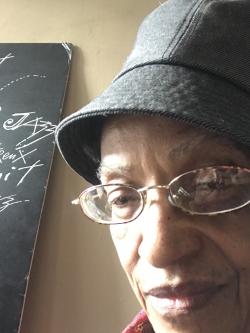Boris Pasternak
Folder:
Vintage Words .
I never read the novel, the Russians
are long winded, but the movie was:
White as the absence of a side
to take, sharp as a blade cutting
the ice near isolated
spaces sheathed in a wasteland
aswirl with snow. In Russia,
there is always snow.
.
In a time of horses and sleighs,
sabers, and palaces, the poor
are as always, hungry and cold.
The middle classed and wealthy
remain indifferent except for the quality
and availablity of the best years
for wine. A time of footprints
in snow, rags around the feet,
and starvation. Gas lamps
outside, inside candles mostly.
.
A brother narrates the telling
of love during wartime
and the changing of the guards.
Scattered families will never
be reunited, tales of heroes gone
mad, villains escaping a huge
constellation of characters, with only
death defining the tale's end.
.
Red was for the living, the life
blood of a future empire destined
to fall. Warriors deserting
the front lines to go home
to find the Czar dead,
and a newer order with newer
chains and more inventive ways
to starve or cough. The latest fashion
was the renaming of cities
with Revolutionary names. Red
became a color of a heart pulsing,
spilling on ground frozen over
with thousands of corpses to be found
come the spring thaw.
.
The soldiers singing, “Death comes
when it comes. It has no appetite
for breathing.” The flag's color made
little difference to most Russians, really.
Finally, the winners won.
.
Balalaika playing was hereditary
and encouraged until dams full
of flowing notes filled the crisp spring
air. As the Director declared, an aging
uncle watched beneath heavy gray
with experience brows as another
generation of soldiers, the legacy
of apolitical and unknown parents,
set to the tasks of running
the temporary peace.
.
Lady A
11-12-12
1158a
.

That is a great summary. I
That is a great summary. I first saw the movie when I was eleven or so, and read the novel seven years later. I think Pasternak could have cut some of the text, and lost control of the story as the novel nears its conclusion. The movie is a much better interpretation, and I think its primary metaphor, for me at least, is when the refugees train is sidetracked to allow Strelnikof's red locomotive and its armed battle carriages to plow through at high speed. That is what the revolution was about---plowing through at high speed. The movie did fail to bring out the supreme tragedy of the murder pf the czar's family.
Starward*Led
History On Steroids
I have never read much Russian history except in Lenin bios and We The Living. All romanticized. ~S~
Almost as epic as many of the
Almost as epic as many of the old 19th century Russian novels.
I Admit
Have not read the Russians. TV and movie expisure only. I cracked 1 of 2 volumes of my archipelago. Loooooog!
I'll
tell ya, Stella, I love your stuff...
Soon, I'll elaborate more...
I've run out of time today
Got get too bed, got to work the midnight shift...
Peace
Dylan
"One of the best results of life, is the torment of love"
Dylan Eliot
U R So Kind
Thanks for the nice comment ~~A~~